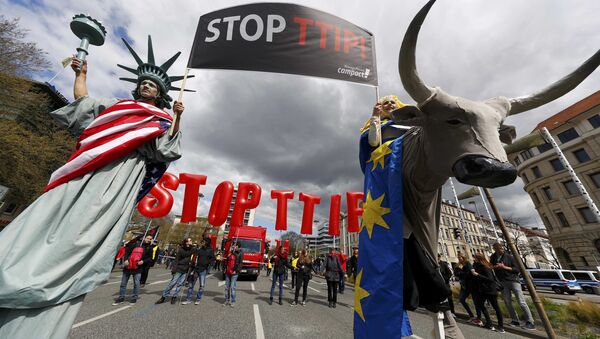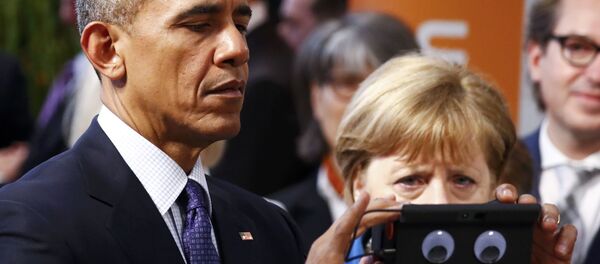Thus, if a US multinational company lost profits because their product or service was banned by law for health or other reasons, they would be able to sue a government — or the EU — for loss of earnings. These disputes would be resolved in special tribunals, not under existing judicial systems.
Under ISDS, Tobacco giant Philip Morris has sued Australia for introducing plain packaging on cigarettes and also sued Uruguay for printing a health warning on cigarette packets. Waste and energy company Veolia sued Egypt for introducing a minimum wage. Argentina was sued for freezing energy prices to protest consumers following the country's financial collapse.
#FOIA reveals govt’s assessment of #TTIP's corporate courts – “lots of risks and no benefit” https://t.co/gdEKNlhROs pic.twitter.com/7xkJ8g5Zvc
— Global Justice Now (@GlobalJusticeUK) 25 April 2016
"Essentially, it's a parallel legal system which is open to foreign investors, or corporations, to take action against a government for treating them unfairly [which] has come to mean anything which damages their bottom line, their profits," Nick Dearden, the director of campaign group Global Justice Now told Sputnik.
"Any piece of legislation or regulation a government undertakes has the potential to damage corporate profits. That's fine if it's in the public interest, or protecting the environment or something we democratically want to do.
"Our worry is that something in these trade agreements that privileges foreign corporations or investors, provides the stick they can use to beat governments who are trying to protect the public interest," Dearden told Sputnik.
Risk Assessment Ignored
Now, as the latest TTIP talks get underway in New York Monday (April 25) Global Justice Now has obtained a Freedom of Information request showing that the British Government has made no risk assessment of investor protection in CETA — the free trade deal between Canada and EU.
British govt ignored its own risk assessment on TTIP's corporate courts, which warned 'don't do it' https://t.co/4BXpVOlcPP #NoTTIP
— Nick Dearden (@nickdearden75) 25 April 2016
"Both CETA and TTIP will open this mechanism up to tens of thousands more companies that can take this action against them. With CETA they haven't taken any risk assessment at all. On TTIP, they did do a risk assessment which essentially said 'don't do it' because there is far more risk to this than there is potential benefit. So the only risk assessment they've done, they have essentially ignored," Dearden told Sputnik.



